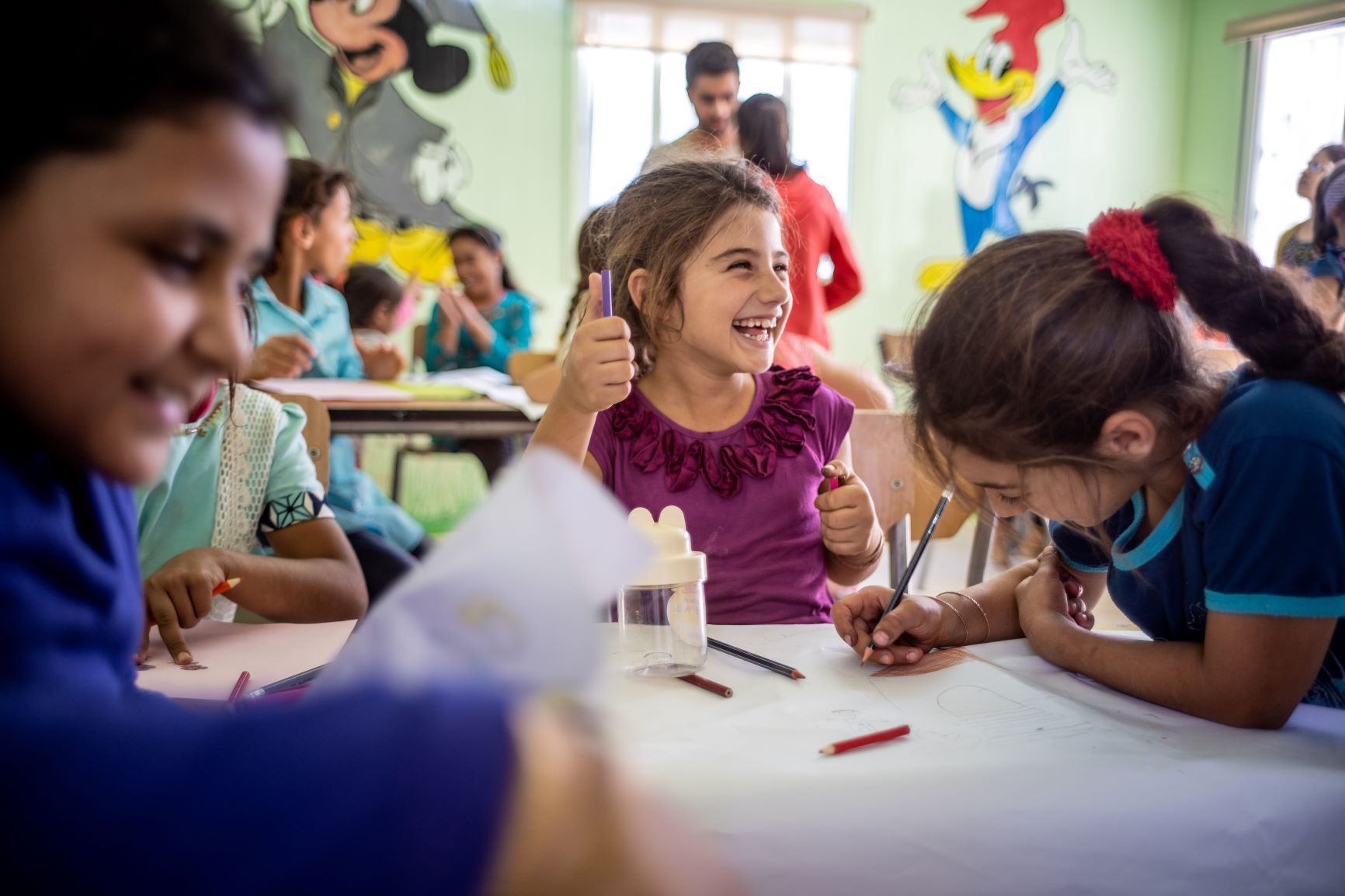Many of the thousands of Syrian refugee children in Jordan are not enrolled in Jordan’s school system or attend other education. Recent data show that 83,900 Syrian refugees of school age (36% of the total) do not participate in structured learning activities. This increases the risk of children being forced into child labour, child abuse or early marriage.
The Novo Nordisk Foundation has therefore awarded more than DKK 19.9 million to the United Nations Children’s Fund (UNICEF) to continue and further develop UNICEF’s Makani centres, which have an integrated approach to children’s development with space for play and learning – and also focus on processing children’s trauma and protecting their rights. The centres offer specific support for Syrian refugee children and adolescents and other young people in Jordan who are affected by the conflict in Syria. This support includes helping them with reading, writing and arithmetic and tutoring for those attending school. By providing the grant, the Foundation aims to contribute to enabling more children to attend school and to reduce dropout.
“The purpose of our grant is to strengthen learning and readiness for education among the young refugees in Jordan. Through our partnership with UNICEF, we want to enable more young people to learn and become educated and, in the long term, become self-sufficient and contribute positively to their communities, thereby increasing their opportunities to create a good life,” says Hanna Line Jakobsen, Head of Social & Humanitarian, Novo Nordisk Foundation.
Noteworthy results
Studies of the Makani centres (makani is Arabic for my place) have shown increases in the number of children enrolled in school, improved learning outcomes, fewer child marriages and improved well-being among the children and adolescents who have been part of the centres. In addition to supporting reading, writing and arithmetic skills, the centres also offer children and adolescents assistance in processing the trauma they brought with them from Syria. Through sports, art and drama, they learn to express their emotions positively and are taught how to express their opinions, develop solutions to challenges in their communities and participate in local decision-making.
Karen Hækkerup, Secretary-General, UNICEF Denmark, says: “Displaced Syrian children need places where they can be children – where they can play, develop and learn. In the harsh daily lives of children displaced from their homes, it is crucial for UNICEF to create a safe and secure place for learning and play, while also focusing on improving the conditions for children’s development in general. That is why the Makani centres are so important. We operate more than 150 Makani centres in Jordan in collaboration with local authorities and other local partners. Being locally based is essential, and the grant from the Novo Nordisk Foundation will enable us to continue and expand our work to create the best settings for the children to have the opportunities they need to reach their full potential.”
The Makani centres have been established in refugee camps, communities and temporary tent camps throughout Jordan since 2015. In 2017, the Foundation supported the centres with a grant of DKK 10.5 million. The Foundation’s new grant of DKK 19.9 million covers the next phase of the project, which runs from 2020 to 2021 and will build on the lessons learned in the first year of the project.
Increased grants for humanitarian purposes
The grant for developing the competencies of young refugees in Jordan is part of the Foundation’s new strategy for grants for humanitarian purposes and development initiatives that also includes an initiative to combat noncommunicable diseases in selected countries in eastern Africa. In addition, the Foundation will allocate funds for emergency relief.
The Foundation plans to gradually increase its annual payouts in humanitarian and development aid, with these rising to DKK 200 million annually in 2023. Read more here.
About UNICEF
UNICEF is the organization that countries of the world have chosen to lead efforts to ensure that children succeed in life. The framework is the United Nations Convention on the Rights of the Child, and all the efforts require voluntary contributions. UNICEF bridges the gap between emergency aid and long-term, sustainable aid. For 70 years, the organization has delivered results so that today more children survive, complete their education and grow up in safety in 190 countries and territories.
Further information
Sofie Folden Lund, Senior Partnership Communications Manager, UNICEF Denmark, phone: +45 3527 2803, [email protected]
Christian Mostrup Scheel, Senior Press Officer, phone: +45 3067 4805, [email protected]








